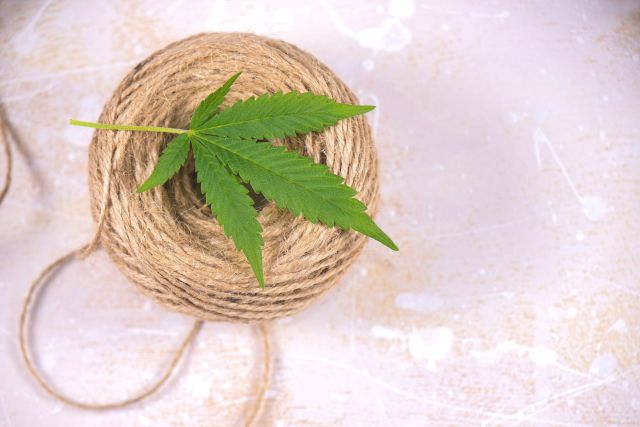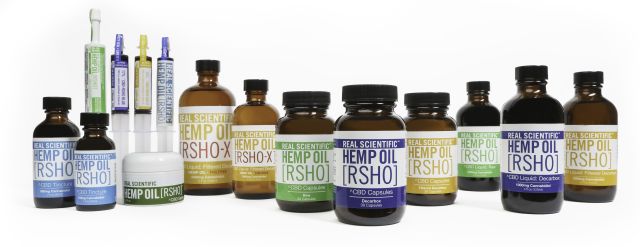When you think about a weed leaf, what type of image comes to mind? A giggling hippy with a taste for reggae, or a strong, healthy athlete?
It’s probably the former. Cannabis plants have long been associated with stoners and Doritos, making 4/20 a holy day for layabouts to do nothing but smoke up and chill out.
That perception could soon change. If a strong push from a quickly growing industry has anything to say about it, cannabis and its byproducts could soon be considered as essential as vitamin supplements to keeping you active and healthy.
You might have already seen cannabis-based recovery products floating around the gym, especially if you’re in a weed-friendly state out west. So, what’s the deal? Are you opening a gateway if you try one out?
Am I Gonna Get High?
The key to your experience with a cannabis byproduct all comes down to the cannabinoids. These are the chemical compounds found in different types of cannabis plants, like marijuana and hemp. There are thought to be over 100 different varieties of cannabinoids, but most attention goes to the two most significant: tetrahydrocannabinol (THC) and cannabidiol (CBD).
Marijuana as we’re most familiar with it is grown (and smoked and eaten) for THC, which has the psychoactive properties your burnout buddies love. Hemp, meanwhile, is heavy on CBD, which is non-psychoactive, so there’s no high when ingested.
Researchers have found that both of the cannabinoids have therapeutically beneficial properties, and claim that the compounds could be good for human consumption. While some people are stoked on the mind-altering experience that comes with smoking a THC-filled joint, others are more excited for the pain relief that is thought to come with the application of CBD.
Doctor Cannabis
We asked Dr. Stuart Titus, PhD, the President and CEO of Medical Marijuana, Inc., about the buzz around cannabis-assisted recovery. The business, which says it was the first publicly traded cannabis company in the US, is a strong proponent of CBD usage, and Titus is a leading voice in the charge to popularize supplements as a means of athletic recovery and pain management.
Titus says that his experience as a physical therapist first led him to medical marijuana. While he was treating athletes in his practice, he says that he found that many were turning to cannabis to treat a whole slew of ailments, from pain and inflammation to sleep issues. He dove headlong into the space and hasn’t looked back.
When Titus is asked to provide some backup for his company’s research, he can point to the highest possible authority.
“I think some of the best information comes from the US government’s patent,” he says, referring to a patent assigned to The Department of Health and Human Services. “It actually mentions very specifically that the non-psychoactive cannabinoids like CBD are more preferable to use, because you can give larger doses without any of the intoxicating or negative side effects.”
The actual language of the HHS patent is much broader, stating that cannabinoids have been found to have both antioxidant and neuroprotectant properties, and could be useful for treating everything from your sore knee to your grandpa’s Alzheimer’s disease. That means the compounds could be good for both your body and your brain—and that’s the official stance of a department of the US government.
Titus believes the benefits of CBD go even further. “Many people report that utilizing CBD actually helps sharpen their mental skills,” he says of his research findings. One of the branches of his company is currently studying how CBD could be used to treat CTE, the degenerative brain disease linked with concussions that has been found in an alarming number of former pro football players.
A Dab of CBD a Day to Keep the Doctor Away
CBD could be a boon to people looking to ease the soreness and inflammation that comes with intense training and exercise. Dr. Titus thinks that the compound could be even more beneficial than vitamins found in supplements that you might already use to keep your muscles and joints in top shape.
“CBD seems to have a much greater antioxidant effect than vitamin C or vitamin D, so many athletes are using this to deal with inflammation,” he says. That makes it highly sought after by athletes looking to avoid other treatments like steroids, that have more significant side effects and varying levels of legality.
Titus says CBD can be used specifically for rehab purposes, but also believes it could soon become an essential component of a healthy lifestyle. “We really believe that at some point there will be a fixed daily recommended serving size of CBD. Just like people take something like vitamin C on a regular basis to improve their overall levels of health and wellness, at some point these non-psychoactive cannabinoids could garner that too, with enough research.”
CBD supplements come in many forms. There are pills, pastes, and oils you can ingest for its general benefits like neuroprotection, and sprays for topical application that go right on the source of the swelling and pain.
No Dope
So should you check out CBD products for yourself? That depends.
CBD supplements are still on somewhat shaky legal ground in the US, so you should be careful if you don’t want to take a risk. In some states, especially those with lax marijuana laws, most cannabinoids are fair game, and other areas are expanding laws to allow CBD products containing lower than 0.3% THC.
But the Drug Enforcement Administration (DEA) still maintains that cannabis in all forms is illegal, and other states agree. You should probably double check the laws where you live, just to be safe. A bill with bipartisan support has been introduced in the Senate that would totally legalize hemp and its byproducts at the federal level, though, so the legal status is evolving.
If the only thing keeping you back is fear that you could fail a drug test, you can put your worries aside. The World Anti-Doping Agency (WADA) removed CBD from its prohibited substance list this year (as long as there’s no THC). CBD advocates claimthat sensible supplement use won’t turn up positive in typical drug screenings, either, so your job prospects might not be at risk, either.
Whether you should use CBD or not is all up to how comfortable you feel with the current status of cannabinoid research. You should talk to your doctor first, just like you should before starting any type of supplement regimen. You could be on the forefront of a new wellness movement that could take your workout recovery to the next level—and you might just help to make 4/20 a day for everyone to hit the gym.





